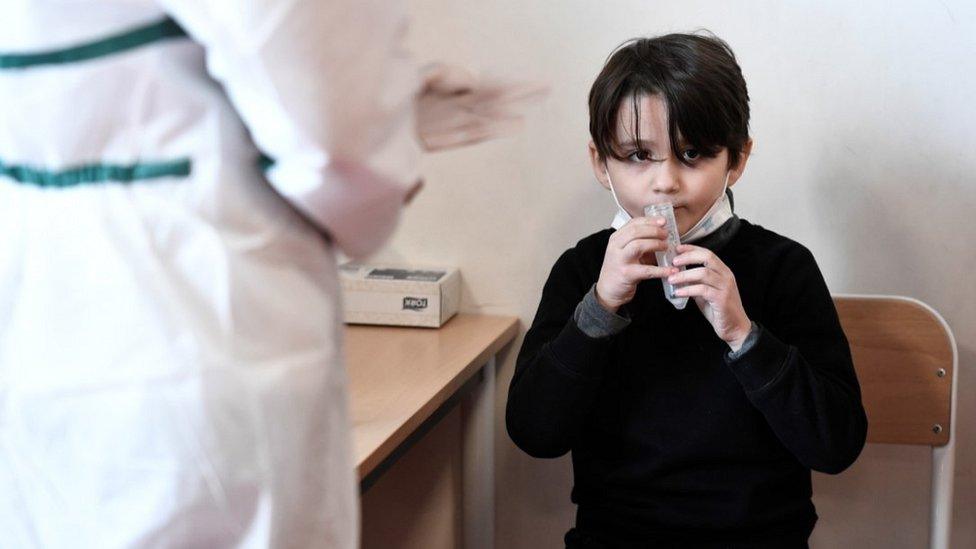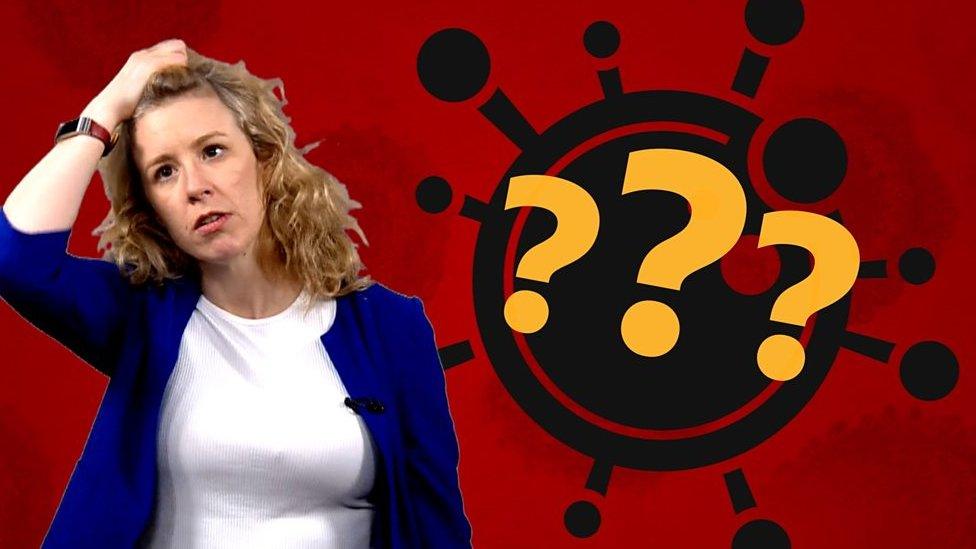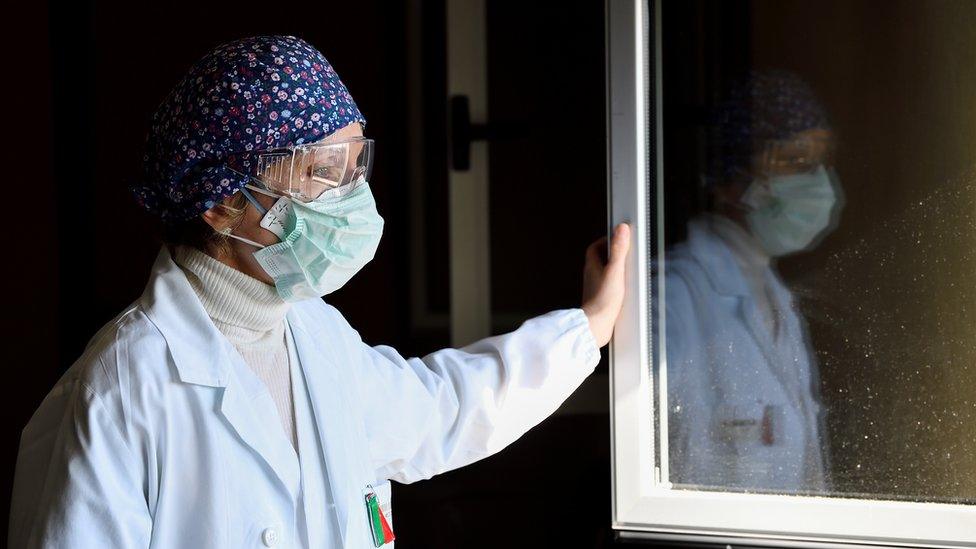Coronavirus: High Covid rates delay France and Germany easing
- Published

French children are giving saliva samples in schools for Covid screening
Stubbornly high infection rates are hampering French efforts to ease coronavirus restrictions, with Nice in the south a particular hotspot.
In Germany many schools are reopening on Monday, but officials say infection rates remain worryingly high.
France is not under lockdown, but there is a national curfew (18:00-06:00).
The area around Nice, which has the highest rate in France, will go into partial lockdown for the next two weekends.
The Riviera resort city has more than 700 cases per 100,000 inhabitants - more than three times higher than the national average of 190, French news agency AFP reports.
The more contagious English variant has been blamed, as well as an influx over the Christmas holiday when tourists descended on Nice. Over the holidays, international flights to Nice jumped from 20 to 120 daily, and most tourists were not tested for the virus, Mayor Christian Estrosi said.
Commenting on the Covid-19 spread nationally, government spokesman Gabriel Attal said "it's going up a bit" and "unfortunately the trend doesn't point to an easing of restrictions".
A senior public health official in Paris, Rémi Salomon, said the epidemic in Alpes-Maritimes, the area in and around Nice, was "out of control". Measures taken so far were insufficient to stop hospitals being overwhelmed, he warned.
Children are back at school after a two-week holiday in several cities, including Bordeaux, Grenoble and Lyon. The schools in those cities have introduced a simple saliva test for the virus.
Called EasyCov, it is less intrusive than PCR and antigen tests that are carried out via a nasal swab. It delivers a result in about 40 minutes.
France staggers the two-week February-March break according to region, so more schools will soon have the new tests.
Covid symptoms: What are they and how long should I self-isolate for?
"With the saliva tests, we think nearly everyone will agree to be tested," said Education Minister Jean-Michel Blanquer.
France has more than 25,000 Covid-19 patients in hospital, of whom more than 3,300 are in intensive care.
While shops are open, restrictions are keeping many businesses shut, including restaurants and leisure facilities. The government is anxious to avoid a third national lockdown.
The slow pace of France's vaccination programme has been much criticised, but AFP reports that the campaign has gained some momentum, with more than 2.5 million people having had the jab.


In many parts of Germany children also went back to school or kindergarten on Monday.
But in only two western states - Baden-Württemberg and Saarland - is the weekly average infection rate below 50 per 100,000 inhabitants. It is above that target level in the other 14 federal states.
Germany's infection rate was far higher in early January, but politicians are concerned that the rate is now dropping very slowly or hardly at all.
The highest rate is 354, in Bavaria's Tirschenreuth district.
German Health Minister Jens Spahn described the Covid situation as "irritating, intensely irritating".
The health minister for Baden-Württemberg, Manne Lucha, said teachers in the south-western state would start getting the AstraZeneca vaccine from Monday. Mr Spahn said a national rollout of Covid jabs for teachers should be possible from 1 March.


- Published24 December 2020

- Published20 February 2021

- Published5 July 2022

- Published21 February 2021
